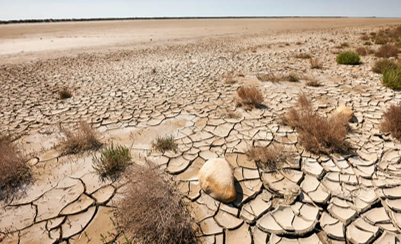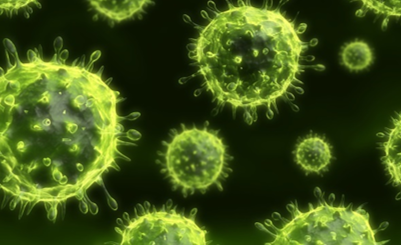PE&RC Day 2017 - Preventing the end of the world
You are here
PE&RC Day 2017
Preventing the end of the world - How science can save the planet
2 November 2017
Annual symposium organized by the PE&RC PhD Council (PPC) for all PE&RC members
Scope
Our world is threatened by problems such as global warming, pandemics, overpopulation, food shortage, collapsing ecosystems, etc., which challenge scientists for solutions. Climate change increases uncertainties in natural processes, threatens unique ecosystems and endangers species. Moreover, a growing world population compromises food security; additionally pandemics spread more rapidly through densely populated areas. Threats like this are existential risks to human kind.
During the PE&RC Day 2017 we will discuss several adversities and zoom in on solutions. This day is an excellent opportunity for participants to discuss solutions to these diverse challenges with fellow PE&RC members; a day where scientists from a broad variety of fields share one common goal: to save the world!
Programme
| 09:30 - 10:00 | Registration & Coffee / Tea | |
| 10:00 - 10:15 | Opening by the Chair of the Day Prof. Bas Zwaan, Professor of Genetics @ Wageningen University (Netherlands) & Scientific Director of the Graduate School PE&RC |
|
| 10:15 - 10:50 | Plant diversity to buffer against the impact of global environmental changes Dr Yann Hautier, Assistant professor in Ecology and Biodiversity @ Utrecht University (Netherlands) Human activities are triggering unprecedented rates of change to Earth’s climatic conditions leading to negative consequences for the provision of the essential ecological functions and services that contribute to human well-being. Biological diversity could serve as a natural buffer against the impacts of climate change. If this is true, current human-induced loss of biodiversity threatens the stable provision of essential goods and services from our ecosystems. I will present some evidence that biodiversity has a stabilizing effect on ecosystem functions and some gaps in our knowledge. |
 |
| 10:50 - 11:20 | Coffee / Tea | |
| 11:20 - 11:55 | Living in a chemical world Dr Majorie van Duursen, Associate professor in Toxicology @ Utrecht University (Netherlands) Chemicals are everywhere: in the air, our food and drinking water, houses and playgrounds. Some chemicals are necessary for our lives and health. Some chemicals can be damaging to our health and especially to that of young children, whose bodies are still developing. Exposure to chemicals already starts in the womb, which may lead to diseases later in life like behavioural problems, infertility and cancer. The environment thus represents a major factor in children’s health, as well as a major opportunity for improvement. Where are the risks and what can politics, science and society do to reduce them? |
 |
| 11:55 - 12:30 | Shifting gears in vaccine development Dr Jeroen Kortekaas, Senior researcher virology @ Wageningen Bioveterinary Research (Netherlands) In the past decades, the world has experienced unprecedented outbreaks of viral diseases. The increase in frequency and size of viral outbreaks is, at least partially, attributed to globalization, climate change and the growing world population. The recent outbreaks caused by Ebola and Zika viruses among humans and Bluetongue and Schmallenberg viruses among animals have demonstrated that our response to outbreaks is poor. Specifically, without exception, vaccines to control these outbreaks were deployed only after the pathogens had spread across continents. This presentation will introduce novel technologies that enable the development of highly effective and safe vaccines within months after pathogen incursions and will propose how current legislation has to be adapted to allow the deployment of these vaccines in emergency situations. |
 |
| 12:30 - 13:45 | Lunch | |
| 13:45 - 14:20 | Steps towards more evidence based restoration of aquatic ecosystems Dr Lisette de Senerpont Domis, Researcher Aquatic Ecology @ Netherlands Institute of Ecology (Netherlands) Although lakes, ponds and reservoirs cover less than 1% of the Earth’s surface, they harbour one third of all vertebrates and about 6% of all species. Lakes provide important services to mankind, including recreational use, aquaculture, water for industry and irrigation and drinking water. However, these ecosystems are the most endangered ecosystems to date. Nutrient pollution is recognized as the most pertinent threat to freshwater ecosystem services. Ongoing population increase, industrialization and climate change will increase the pressures on future freshwater ecosystems even further. Despite tremendous efforts to reduce the nutrient inputs to these systems, the majority of these waters have not recovered from nutrient pollution as a consequence of severe in-lake biogeochemical and biological changes. Current restoration practice is generally characterized by single interventions without extensive problem diagnosis, resulting in more failures than successes. Using a two stepped approach of thorough system analysis, including analysing the nutrient and water flows, and food web structure of a system, and stakeholder analyses, I will explain a benefit oriented design of measures. I will illustrate this by showing examples of common mistakes in designing a restoration plan. |
 |
| 14:20 - 14:55 | Obstacles towards global food security Prof. Martin van Ittersum, Professor of Plant Production Systems @ Wageningen University (Netherlands) It is often cited that by the year 2050 the world will need 60% more food than it did in 2005, because of a growing population and changing diets. Whether this is about the right estimate depends on the unit of total demand (calories, monetary value, etc.) but also on whether we are optimistic or pessimistic about changes in dietary patterns and food loss and waste. In this presentation I will demonstrate that regional differences in increases in food demand will be more pressing than the challenge at global level. While the demand in Europe and the United States will stabilize or decrease, that in sub-Saharan Africa is projected to more than triple. It is evident that the ecological and social consequences of this may be enormous. I will explore some scenarios which give rise to caution as well as some hope. |
 |
| 14:55 - 15:25 | Coffee / Tea | |
| 15:25 - 16:00 | Plants in control: Challenges for food production in greenhouses and vertical farms at any place on earth and in space Prof. Leo Marcelis, Professor of Horticulture and Product Physiology @ Wageningen University (Netherlands) The growing world population requires strong increases in vegetable production. Simultaneously, consumers demand that vegetables are of high quality and that they are produced sustainably. To meet all the requirements we need to have a high level of control over the production process. Production in greenhouses or in vertical farms allows a precise control over the production process, while only a limited area of land is needed. In particular, the introduction of LED lighting is boosting new developments in these production systems. To further improve crop production, product quality and sustainability we need a profound understanding of the responses of the plants to environmental conditions as well as crop management by growers (e.g. pruning, plant density). In this presentation I will highlight how physiological knowledge can be used to improve the vegetable production in greenhouses and vertical farms. Besides food production on earth, I will also discuss the challenges for food production on Mars. |
 |
| 16:00 - 16:30 | Panel discussion | |
| 16:30 - 17:00 | Closure and PE&RC Picture Awards Ceremony | |
| 17:00 - 18:00 | Drinks | |
| 18:00 - 19:30 | Dinner |
PE&RC Picture Awards
Besides the invited speakers, we want to highlight all research carried out by graduate school members through pictures and visualizations. Everyone is invited to submit pictures related to the theme "How does your research show the beauty of our world?" The pictures are exhibited during the day itself, and everyone at the PE&RC day will get the chance to vote for their favourite. Each participant can submit 2 images (one in each category). The top 3 of each category will be awarded a prize with a value of € 75,-, € 50,-, and € 25,-.
Category 1: Thesis cover: No need to be at the end of your thesis to present your research in a picture that could be the cover of your booklet. You have full creative freedom, hand in a photo or start painting. It has to be your original work and no text or title is allowed.
Category 2: Field-/lab-/modelling work: Show the beauty in your work. For example, did you take a great picture through a microscope or during your last fieldwork? Or your model produces a beautiful graphical representation? Send it in!
Format: Be sure that the pictures are of sufficient quality to print the pictures in A3 format. Accompany the picture with a short description of what we see on the picture (max 100 words). Maximum of one picture per category per participant. SUBMISSION PERIOD IN NOW CLOSED.
General information
| Target Group | The annual PE&RC day is meant for all PE&RC PhDs, postdocs and staff members, but non-PE&RC members are also warmly welcomed! |
| Event duration | 1 day |
| Number of credits | 0.3 ECTS |
| Location | Boothzaal (Aula), University Library Uithof, Utrecht University, Heidelberglaan 3, 3584CS Utrecht, the Netherlands |
| Transportation | For PE&RC members residing in Wageningen, we will arrange a bus to transport them to and from the venue in Utrecht (only when you join the dinner). For those PE&RC members that are coming from Amsterdam or Leiden, a financial compensation to go to Utrecht and back (only for those joining the full day, including dinner) will be arranged. Please indicate in the registration form whether you would like to join the bus. Note that you need to be registered no later than Monday 30 October, 11 AM, if you would like to join the bus. |
Organisation
The annual PE&RC Day is organised by the PE&RC PhD Council (PPC), with the assistance of Claudius van de Vijver and Lennart Suselbeek (PE&RC). More details about the PPC can be found here.
More information
Dr Lennart Suselbeek (PE&RC)
Phone: +31 (0) 317 485426
Email: lennart.suselbeek@wur.nl
